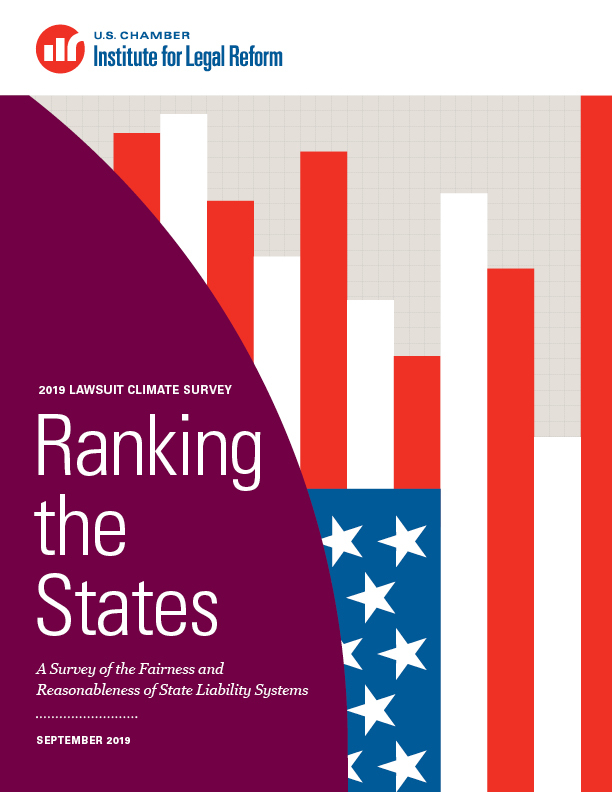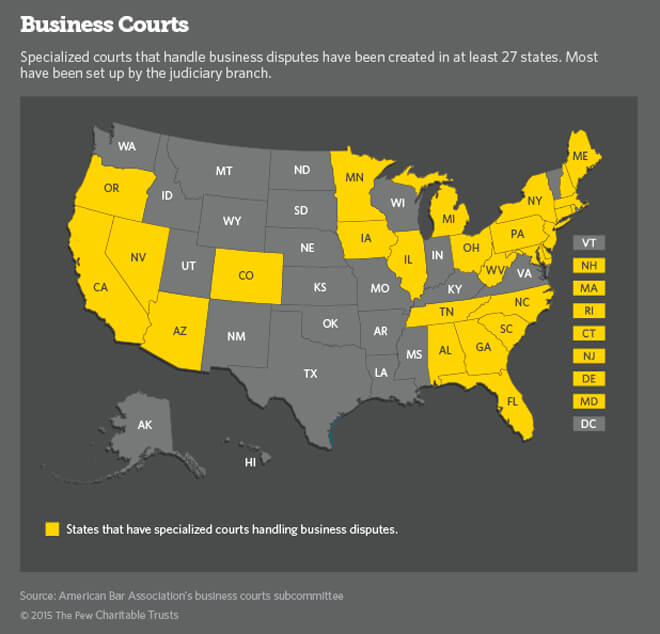
Verdict on statewide business court going to voters
Dave Williams | Atlanta Business Chronicle | October 12, 2018
With Fulton County handling business lawsuits separately for more than a decade and Gwinnett County following two years ago, supporters say it’s time to take the concept statewide.
The General Assembly passed a constitutional amendment last spring calling for Georgia voters to decide whether to create a statewide business court. The measure appears as Amendment 2 on next month’s ballot.
The proposal is aimed at expediting the resolution of complex business cases by sending them to a dedicated court presided over by judges with expertise in business law. Supporters argue the time savings will cut companies’ legal expenses.
Georgia business leaders are making a business case for a statewide business court, pointing to other states including neighboring North Carolina that already have statewide courts.
“If Georgia wants to continue to be the No. 1 state in which to do business, it makes sense to have a business court here as well,” said Kade Cullefer, executive director for Georgians for Lawsuit Reform, a business-backed organization formed last year.
The constitutional amendment stems from a 13-member advisory council Gov. Nathan Deal formed last year to examine the merits of a statewide business court and make recommendations. Part of that effort was reviewing the track records of the Fulton and Gwinnett business courts since 2005 and 2016, respectively, including a survey of lawyers and litigants who had cases before those courts.
“The response was very positive,” said Rocco Testani, an Atlanta-based partner with the global law firm Eversheds Sutherland, who worked with the council and testified before the Georgia Senate Judiciary Committee on behalf of the legislation.
“The cases move more quickly, about half the length of comparable cases elsewhere,” he said. “They get the attention of experienced judges. Experienced litigators mean lower costs.”
While the amendment faces no organized opposition this fall, it raised concerns among some Democrats during this year’s General Assembly debate over how judges presiding over the business court would be selected. It calls for the governor to appoint the judges, subject to the approval of the Georgia House and Senate Judiciary committees.
“We believe these judges ought to be elected, as are all trial and appellate court judges in Georgia,” said Bill Clark, director of political affairs for the Georgia Trial Lawyers Association, which is not taking a formal position on the amendment. “We have a long tradition of electing judges in Georgia.”
Testani said the amendment takes the state’s tradition of electing judges into account by giving legislators a say over appointments rather than leaving them solely to the governor.
“This was kind of a middle ground to have some sort of check on the process and make sure people’s voices are heard at least through their elected representatives,” he said.
Cullefer said he has fielded questions over the potential costs to taxpayers of a statewide business court. He said he hopes separate legislation the General Assembly would take up early next year if the constitutional amendment passes would require litigants transferring a case from their local superior court to the business court to pay a “removal” fee.
“The intent of the court is to be self-sustaining,” he said.
Cullefer said polling his group has done shows solid support for the amendment among Georgia voters and little outright opposition. However, a substantial percentage of voters surveyed indicated they were undecided, he said.
“There’s a large number of people who still don’t know what it is,” he said. “We’ve just got to keep getting the word out.”
Toward that end, Cullefer said his group has launched a social media advertising campaign, a get-out-the-vote effort being supported by the Georgia Chamber of Commerce.
























